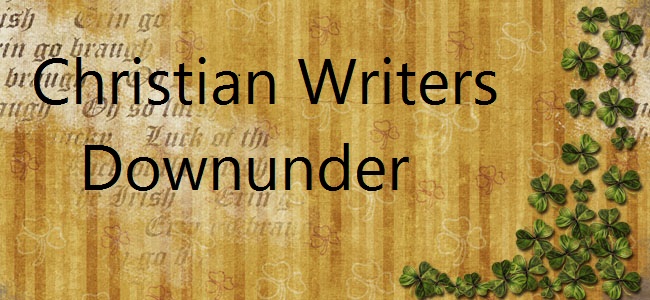However, short fiction can often be a good way of honing writing skills and may be easier to have something accepted for publication.
Why bother with Short Fiction?
For Readers
At conventions, people often say they love to read but don’t have the time to do so. In a time-pressed word, short fiction can be enjoyed in one sitting. Readers an also sample a range of both known and unknown authors in an anthology.Short fiction may leave a reader wanting more character development and/or world building or plot complexity. At its best, short fiction can be thought-provoking, evocative, original, experimental.
For writers:
Writings shorts can be a great way to break into the market, as there are many opportunities for competitions or anthologies or to self-publish.
While not necessarily easy to write , short fiction requires less investment of time and money (for editing etc) than a full length novel. It can give the freedom to experiment with subject, genre, approach without a huge investment in time (so it's not so critical if it doesn't work out).
Short fiction can help a writer to hone their skills - to write powerfully with less words, to set the scene or show character without the fluff, to better understand plot and story structure.
And when short fiction is tied into the author’s other longer works or story world, it can be used to introduce the novel, continue momentum between books, fill out the story world or give greater depth for characters, and/or it can be offered as a freebie in promotions.
Short fiction can come in any genre - and a range of sizes, from six words up to 50,000 words. And while it may seem easier to write less, short fiction requires its own set of skills to do it well.
Types of short fiction:
Mirco-Fiction
Mirco-Fiction - up to 100 words.
Hard to write well, they fit well with the world of mobile phones and texting and twitter (240 characters). Clearly, every word must count.
Ernest Hemingway's famous example of a six-word story is as follows
'For sale: Baby shoes, never worn.'
Flash Fiction
Flash Fiction - between 100-1000 words.
Flash fiction can be used as 'palate cleansers' between longer stories or collected in anthologies (as with the Mixed Blessing books).
The Australia Writers Centre has a monthly Furious Fiction challenge – 500 words written between Friday and Sunday, and incorporating required elements (theme, words or some other element)
Writing flash fiction helps tighten one's prose. The focus is usually on one or two scenes or on the climax of the story. My Ruhanna’s Flight was originally a flash fiction (less than 1000) words which I later expanded to a 7000 word story.
Short Story
Short Story - between 1,000 - 7,500 words
This is often what we think of as a short story. Many competitions, periodical, 'zines and anthologies require this length - often around 2000 to 3000 words. Speculative fiction (sci-fi and fantasy) have bigger words counts of between 7000-10,000 words.
There is more room (or words) to manoeuvre, but focus and tight writing are still essential. It's important to streamline — limit the story to a short period time, small cast of characters, with few if any subplots, and start the story close to the finish.
Novelette
Novelette - 7,500 - 20,000 wordsA novelette falls in between a short story and a novella. My Heart of the Mountain started life as a short story (my original attempt at the 7000 word limit for submissions for Glimpses of Light anthology) but blew out to over 11,000 words. Later, I expanded HOM to 15,500 words as the first book in a novella series.
The term 'novellette', is not well known and tends to cause confusion. For some, it means a novella. Many others have never heard of the term. So, I've called Heart of the Mountain 'short novella'.
Novella
Novella - 20,000 - 50,000 words
A novella (and to some extent a novelette) allows more complexity, with perhaps more characters and twists and it develops over a longer period of time.
Opportunities
Who Publishes Short Fiction
Periodicals, zines, collections and anthologies are usually the home of short fiction. However, short fiction can be published on its own either as e-books or even in print. Short fiction can also be collected in boxed sets.
Current Calls for Submission
Interested in having a go at some short fiction. Keep an eye out for various competitions. Here are some ideas to start with:
Furious Fiction - check it out here.
Elizabeth Klein is look for retellings of lesser known fairy tales for an anthology (due 1st April 2023)
Wombat in Rhiza Edge Short Story Competition want dystopian or steam punk stories for their anthology (open until May 2023) - More info here.
Inklings Press are looking for Mystery stories for their next anthology - until 30 April 2033. See more here.
Please share in the comments below (or on the CWD FB page) if you know of other opportunities.
Have you written (or read) short fiction? What do you like (or dislike) about this form? Who do you think does it well?
 |
| Jeanette O'Hagan with Lynne Stringer |
She has published over forty stories and poems, including the Under the Mountain Series (5 books), Ruhanna's Flight and Other Stories, Akrad's Children and Rasel's Song, the first two books in the Akrad's Legacy series - and new short story in the Starlit Realms: Fantasy anthology.
To get a free copy of Ruhanna's Flight - sign up to Jeanette O'Hagan's newsletter here.

















